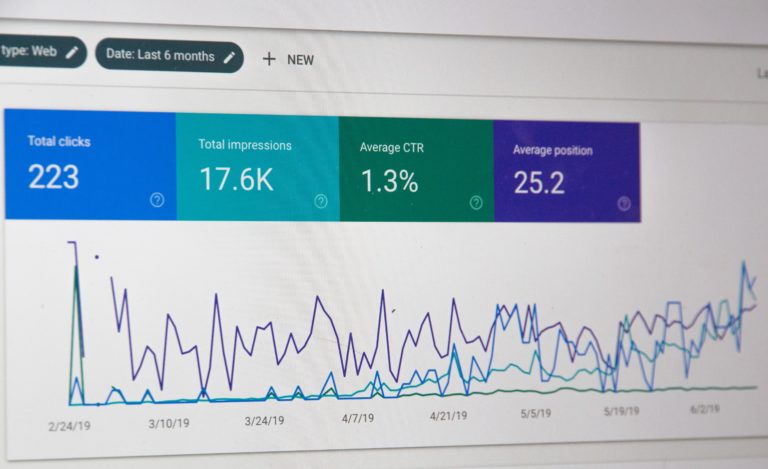Image credits: Kindel Media
In a world where online retailers are constantly competing for customers, businesses are turning to game mechanics to drive sales and conversions. Ecommerce gamification is the process of using game elements in a digital shopping experience to engage and motivate users.
There are many different ways to implement gamification in an online store. Some common techniques include offering rewards for completing tasks or buying products, providing leaderboards and scores, and using challenges and quests to motivate customers.
There are many benefits to using gamification in an ecommerce setting. Gamification can help to increase customer engagement and loyalty, drive sales and conversions, and improve customer feedback.
If you’re looking to add some gamification to your online store, there are a few things to keep in mind. First, make sure that the games are well designed and engaging. Second, make sure that the games are relevant to your target audience and the products you are selling. Finally, always test the games to make sure that they are having the desired effect.
The History Of Gamification
Gamification is the process of adding game mechanics to a non-game context to motivate people to achieve their goals. It has been used in a variety of settings, including education, employee training, and, more recently, marketing and sales.
The history of gamification can be traced back to the early days of video gaming when developers began to experiment with ways to keep players engaged and motivated. In the 1990s, video game designers began to use rewards, such as power-ups and extra lives, to keep players hooked on their games.
In the early 2000s, social networking sites like Myspace and Facebook began to use game mechanics to keep users engaged. These sites rewarded users for activities like adding new friends, posting updates, and voting in polls.
In the late 2000s, gamification began to be used in business and marketing contexts. For example, companies began to use rewards, such as badges and points, to motivate employees and customers.
The Benefits Of ECommerce Gamification
Games are a great way to engage and motivate users, which is why many businesses are turning to game mechanics to drive sales and conversions. In this article, we’ll take a look at what ecommerce gamification is, and some tips for how to implement it in your own online store.
Ecommerce gamification is the process of using game mechanics to drive sales and conversions on your online store. By adding games and rewards to your checkout process, you can encourage customers to complete their purchase, and thereby increase your conversion rate.
There are a number of benefits to ecommerce gamification. Firstly, it can help to increase sales by encouraging customers to complete their purchases.
Types Of Rewards In Ecommerce Gamification
There are a variety of different types of rewards that can be used in ecommerce gamification. Some of the most common types of rewards include:
1. Points: Points can be awarded for any number of actions, such as making a purchase, referring a friend, or leaving a review. Points can then be redeemed for discounts or other rewards.
2. Leaderboard Rankings: Rankings can be a motivating factor for some shoppers. Giving shoppers the chance to see how they rank against others can encourage them to continue participating in the game.
3. Achievements: Achieving certain milestones can also be a motivating factor for shoppers. Completing an action or reaching a goal can unlock an achievement and give the shopper a sense of accomplishment.
4. Rewards Catalog: Offering a rewards catalogue is a great way to give shoppers a variety of options when it comes to redeeming their rewards. This can help keep them engaged and encouraged to continue participating in the game.
How To Implement On Your Store
If you’re looking for ways to engage and motivate your customers, you may want to consider ecommerce gamification. Gamification is the use of game mechanics in non-game contexts, and it can be a great way to drive sales and conversions. In this article, we’ll take a look at what ecommerce gamification is, and some tips for how to implement it in your own online store.
One of the most important things to keep in mind when implementing gamification is to make sure that it is relevant to your customers. For example, if you sell sporting goods, you could create a game that challenges users to score as many points as possible by buying products from your store. Alternatively, you could offer rewards to customers who make a certain number of purchases within a given timeframe.
Whatever you decide to do, make sure that the game is fun and engaging, and that it provides a real incentive for customers to participate. And most importantly, make sure that the game is easy to play and doesn’t require too much effort on the part of the customer.
Here are a few tips for getting started with ecommerce gamification:
1. Choose the right game mechanic.
There are many different game mechanics that you can use in your ecommerce store, so choose the one that is most relevant to your business and your customers. Some common game mechanics include points, leaderboards, badges, and challenges.
2. Keep it simple.
Don’t make the game too complicated – you want it to be fun and easy to play. The simpler it is, the more likely your customers are
Tips For Enhancing Your Gamification Strategy
1. Make sure your game mechanics are well-integrated into your overall ecommerce strategy.
2. Use game mechanics to reward customers for engaging in desired behaviors, such as making purchases, referring friends, or rating products.
3. Make your games engaging and fun to play, so customers will want to keep coming back for more.
4. Keep track of how your games are performing and make changes as needed to ensure that they are having the desired effect.
5. Be sure to use gamification in a way that is appropriate for your business and customers.
Examples Of ECommerce Gamification In Action
There are a number of different ways to implement ecommerce gamification in your online store. Here are a few examples:
1. Set up a rewards program.
Rewards programs are a great way to motivate customers to make purchases. You can offer rewards such as discounts, free shipping, or bonus points for every purchase.
2. Run a contest.
Contests are a great way to engage and motivate customers. You can run contests to promote specific products or encourage customers to make a certain number of purchases.
3. Use leaderboards.
Leaderboards are a great way to motivate customers to compete with one another. You can use leaderboards to track customer progress and award prizes to the top performers.
The Future Of ECommerce Gamification
Gamification is the process of applying game mechanics to non-game contexts to motivate users. In the ecommerce world, this can be used to drive sales and conversions by providing a fun and engaging experience for shoppers.
There are a number of ways to implement gamification in your online store. One popular approach is to use leaderboards and badges to reward shoppers for completing tasks or spending a certain amount of money. You can also add games to your store’s checkout process, or create contests and challenges that shoppers can participate in.
Whatever approach you choose, make sure that the games are relevant to your target audience and are designed to motivate them to take action. If you can create a fun and engaging shopping experience, you’ll be more likely to see a boost in sales and conversions.









